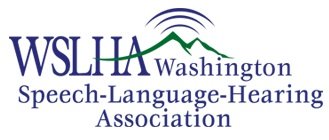About the Event:
Participants will learn how to practically implement Aided Language Stimulation by focusing on 6 key features of the approach and discussing appropriate modeling and activity selection based on client/student interests. Strategies for engagement, how to interact with the client/student selected materials, and vocabulary will be discussed to help aid in clinical problem-solving for students/clients with a perceived lack of motivation, and/or untraditional play skills.
Presenter: Marissa Caccavale M.S. CCC-SLP
Learning Objectives:
Identify the critical importance of AAC modeling on skill acquisition for AAC users.
Define and describe joint attention comments and how to distinguish them from requests in students/clients who use 1–2-word phrases via AAC.
Analyze the results of a multiple probe across participants design examining the effect of Aided Language Stimulation on commenting in non-speaking autistic adolescent AAC users.
Identify key features of Aided Language Stimulation in order to practically implement the technique in therapy sessions with autistic AAC users.
About the Presenter:
Marissa Caccavale M.S. CCC-SLP: Marissa is the supervisor of the speech department at the Speech and Language Development Center in Buena Park, CA and adjunct faculty at Chapman University in Orange, CA. She has worked as a speech-language pathologist for 10 years and specializes in the areas of AAC, Autism, and pragmatics. She obtained her master’s degree from Chapman University and is finishing her clinical doctorate at Rocky Mountain University of Health Professions. Marissa has participated in research in the areas of social emotional learning, social inferencing, and AAC, is a published author in pragmatics, and has presented at state and national conventions.
Disclosures: Financial: Supervisor of the Speech Department at the Speech and Language Development Center in Buena Park, CA and adjunct faculty at Chapman University in Orange, CA. Non-Financial: Nothing to report.
This program will be recorded for later viewing up to 14 days following the workshop. WSLHA will send out a link to the recording after the live session.
Intermediate Level – 0.2 ASHA CEUs
ASHA CE Provider approval and use of the Brand Block does not imply endorsement of course content, specific products or clinical procedures.
OSPI Clock Hours – 2 hours
WSLHA charges a processing fee of $5.00 for ASHA CEUs ($7.00 non-members) and $5.00 for clock hours payable prior to the workshop.
Credits must be purchased prior to the program. Any requests for credits after the date of each workshop will be denied.


